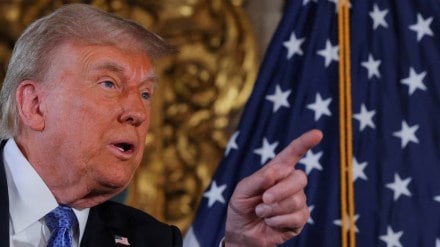President Donald Trump has signed a proclamation designating May 8 as “Victory Day for World War II,” aligning the United States with its allies in commemorating the 80th anniversary of Nazi Germany’s surrender in 1945. While cities from London to Moscow mark the event with parades, flyovers, and memorials, Trump says it’s time the U.S. formally celebrates its own role in the Allied victory.
The Republican leader has made it a point in recent weeks to criticize what he sees as a lack of recognition for America’s military achievements in the two world wars.
“Many of our allies and friends are celebrating May 8th as Victory Day, but we did more than any other Country, by far, in producing a victorious result on World War II,” he wrote last week on social media. “We won both Wars, nobody was close to us in terms of strength, bravery, or military brilliance, but we never celebrate anything — That’s because we don’t have leaders anymore, that know how to do so! We are going to start celebrating our victories again!”
In addition to naming May 8 for World War II, Trump said he plans to commemorate November 11 — already recognized as Veterans Day in the U.S. — as Victory Day for World War I. However, renaming a federal holiday is outside the president’s authority; only Congress can do that. This may be why Trump shifted his language from “renaming” to “declaring” national holidays.
“We won two World Wars, but we never took credit for it — Everyone else does! All over the World, the Allies are celebrating the Victory we had in World War II. The only Country that doesn’t celebrate is the United States of America, and the Victory was only accomplished because of us,” he wrote on Monday. “Therefore, I am hereby declaring a National Holiday in celebration of the Victories of World War I… and World War II.”
While his proclamation makes May 8, 2025, an official day of observance for Victory in World War II, it does not grant a day off for federal workers, as that would require congressional approval. Trump has even acknowledged that the country may have “too many celebrations already,” suggesting these new days would be symbolic, rather than formal federal holidays.
What these commemorations will look like remains unclear. Trump has not offered details on events or national ceremonies. During a brief appearance in the Oval Office on Wednesday, he expressed disappointment that the U.S. doesn’t recognize these victories the way its allies do.
“We don’t celebrate it and I think that’s a great disservice,” he said, referring to the large-scale celebrations in France and elsewhere.
Across the world, such events are major affairs. In the UK, VE Day is marked with flyovers and royal appearances. In Russia, Victory Day parades include thousands of troops and extensive military displays, especially in Moscow’s Red Square.
Veterans’ organizations have cautiously welcomed Trump’s effort to draw attention to those who served.
Rob Couture, director of public affairs for the Veterans of Foreign Wars, said the group supports initiatives that honor the service of veterans from the era. As of 2024, just over 66,000 of the 16.4 million Americans who served in World War II are still living.
